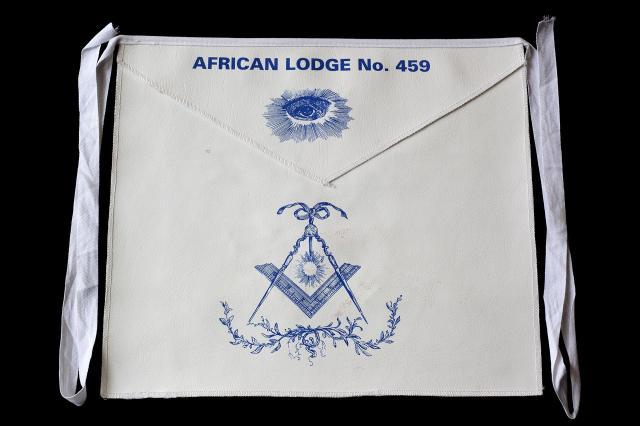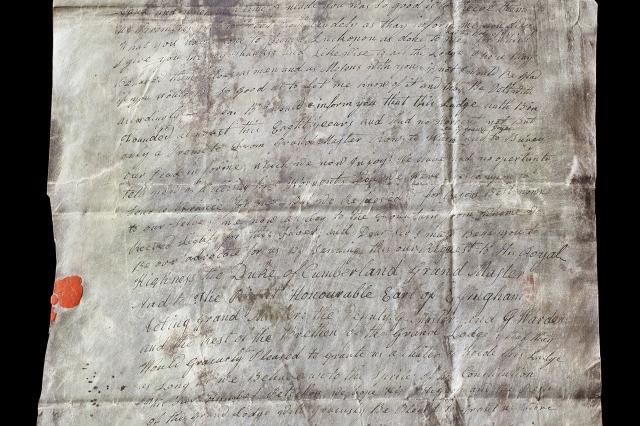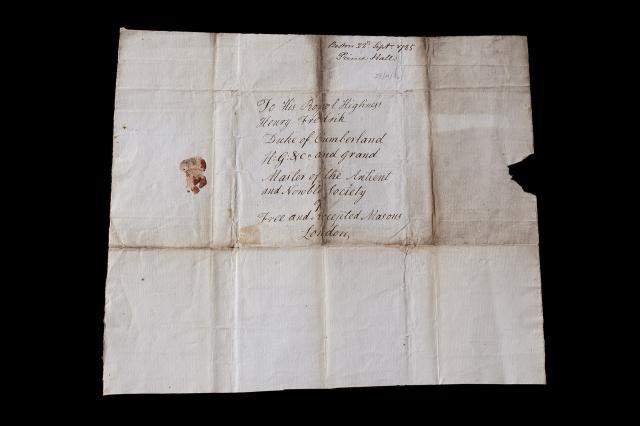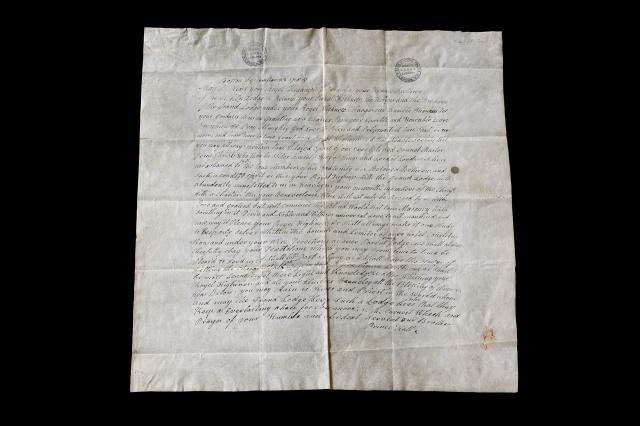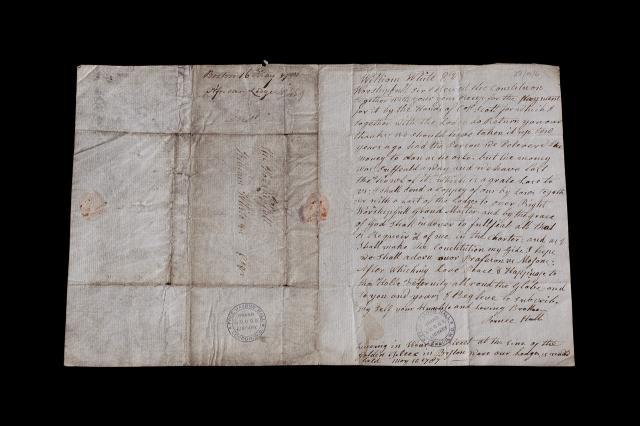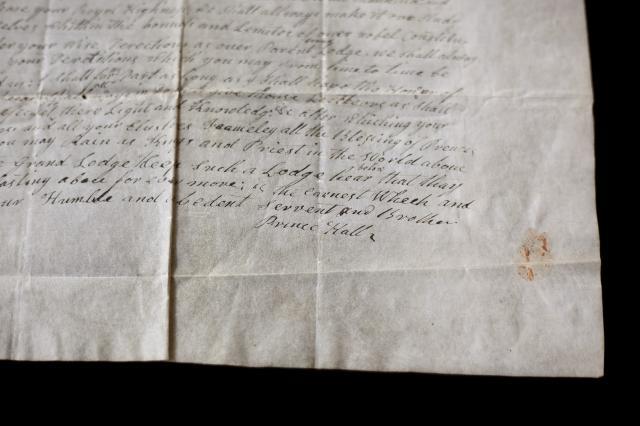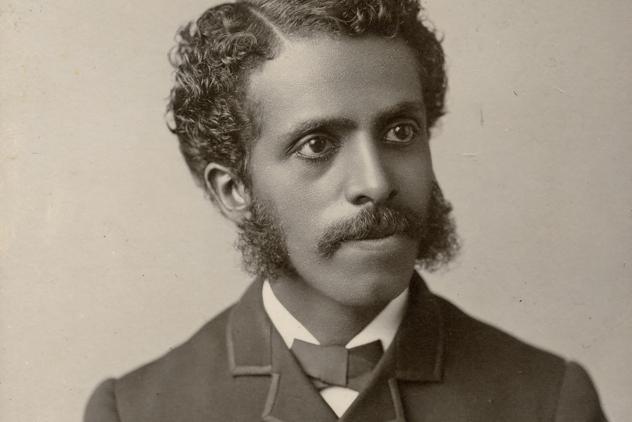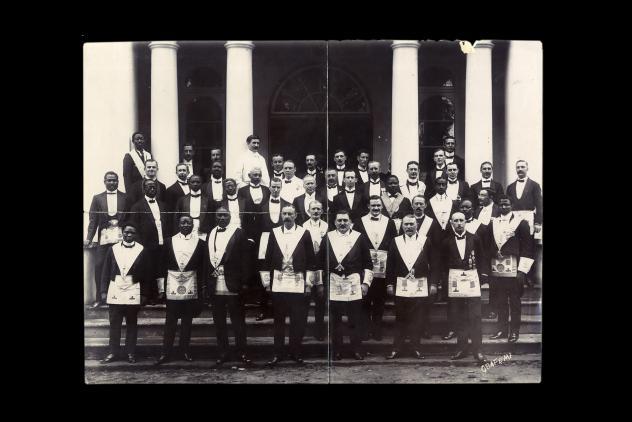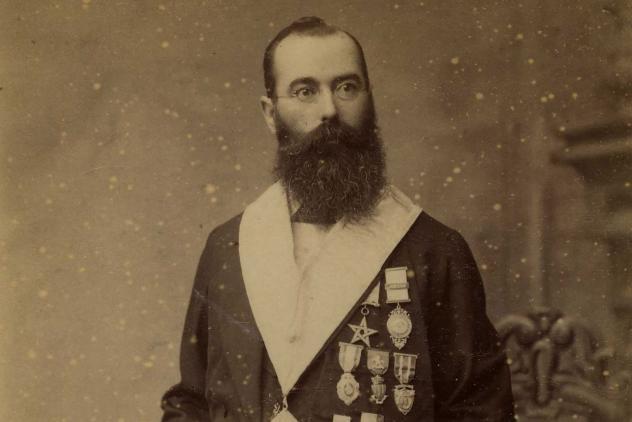In recognition of Black History Month we are shining a light on some of our collection that reflects on the black experience in freemasonry. One fundamental aspect of this experience is undoubtedly what is known as Prince Hall freemasonry.
What is Prince Hall freemasonry?
Prince Hall freemasonry is the collective name given to a group of grand lodges, mostly in North America, whose membership is predominantly African-American.
Who was Prince Hall?
An African-American, Prince Hall wrote to Grand Lodge in 1784 for a warrant to form a new lodge, known as African Lodge, after the American Revolutionary War (American War of Independence), which enabled other African-American Bostonians to join. It is difficult to find details about Prince Hall as several contemporary Boston residents had the same name. It is possible that Prince Hall was initiated as a freemason in a travelling, military lodge meeting under the Grand Lodge of Ireland. Prince Hall contacted William Moody, Worshipful Master of Brotherly Love Lodge, No. 55 meeting in Tottenham Court Road, London, to act as a go between to help the Lodge obtain a warrant from London. Prince Hall sent lodge members, Brothers Reed and Menes, to London to obtain the warrant.
Why did Prince Hall freemasonry come about?
After the War of Independence, American freemasons broke away from British grand lodges and formed their own State grand lodges. The new Grand Lodge of Massachusetts would not allow African-Americans to join their lodges, which is why Prince Hall turned to England to obtain a warrant. With African-Americans in Philadelphia, Providence and Rhode Island, also wishing to form lodges, Prince Hall assumed the role of a Provincial Grand Master and opened several new lodges. After the creation of the United Grand Lodge of England in 1813, all the American lodges were removed from the English roll lodges, including African Lodge. With its contact with England severed and no chance of entry into the Grand Lodge of Massachusetts, African Lodge became a Grand Lodge in its own right and changed its name to the Prince Hall Grand Lodge of Massachusetts. The movement expanded, with grand lodges appearing in more States and now lodges meet across the world.
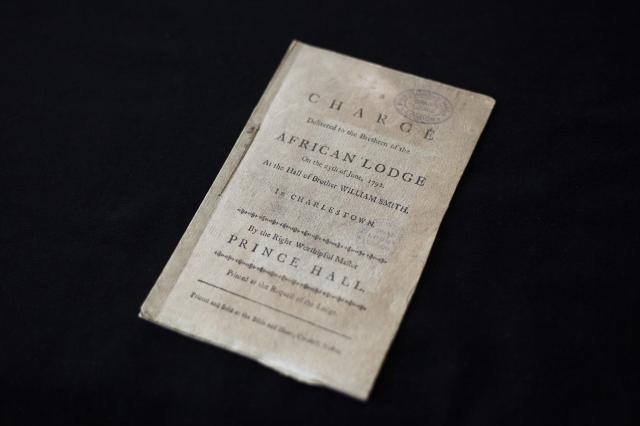
How did the other grand lodges in America react to Prince Hall freemasonry?
Freemasonry remained non-inclusive in many states until the 1960s and Prince Hall freemasonry remained unrecognised by the predominantly white state grand lodges. In 1898 William H. Upton persuaded the Grand Lodge of Washington state to recognise Prince Hall freemasonry. They accepted, though it was reversed the following year after hostile reaction from the majority of other white American grand lodges. The Grand Lodge of Massachusetts recognised members of the Prince Hall Grand Lodge of Massachusetts in 1994, which paved the way for reconciliation between other grand lodges in the USA and their Prince Hall counterparts. Until 1994, the United Grand Lodge of England could only recognise one grand lodge in a state but since then it has started recognising Prince Hall Grand Lodges in other American states.
What about the rest of the world? Was there support abroad?
Lodges meeting under Prince Hall freemasonry expanded across America, Canada, into the Caribbean, Liberia and Europe. Prince Hall Lodges have been formed and have met at American air force bases established in the UK.
Is there a lasting legacy that we should be aware of?
The Museum of Freemasonry archive collection includes eleven letters sent by Prince Hall to the Moderns’ Grand Lodge in London from 1779 to 1798, in addition to other papers relating to African Lodge and to black freemasonry in other American states. Two letters mention John Marrant, African Lodge’s chaplain, who was ordained as a minister in Bath, England in 1785 and later established a chapel in Islington, London where he died in 1791. There are also letters from African-American grand lodges in other states seeking to communicate with the United Grand Lodge of England. Some letters contain references to prejudice that existed against African-American freemasons, despite the abolition of slavery in the USA in 1865.
Notable Prince Hall freemasons include:
Thurgood Marshall (Associate Justice, US Supreme Court); Daniel 'Chappie' James (General, US Air Force); W.E.B DuBois (Educator/Author/Historian); Sugar Ray Robinson (Champion boxer); Ralph H. Metcalfe (Olympic champion); Edward Kennedy 'Duke' Ellington (Orchestra leader/Composer); Nathaniel 'Nat King' Cole (Pianist/Singer); William C. Handy (Composer); Kweisi Mfume (President/CEO of NAACP); Rev. Jesse Jackson (Civil rights leader) and Scottie Pippen (Basketball player). Find out more from the Prince Hall Grand Lodge District of Columbia.
